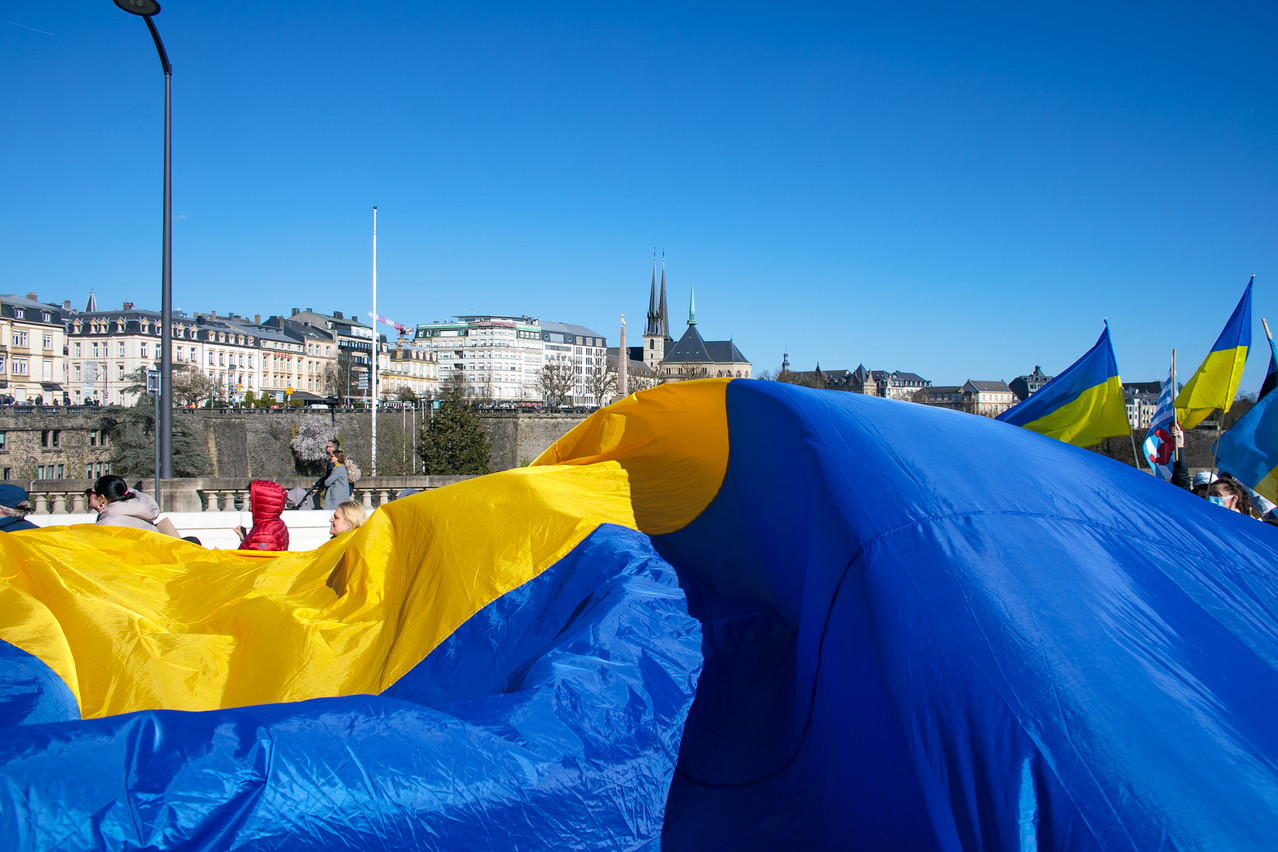When news of the invasion hit the news one year ago, of the grand duchy to see how they felt about it. From our interviews emanated a strong feeling of support for Ukraine and complete incomprehension towards Putin’s actions. One year and ten EU sanction packages against Russia later, the community continues to stand against war.
Vsevolod Iampolski, who arrived in Luxembourg in 1994, is the president of the Russian Club of Luxembourg. He was one of our interviewees last year too. “I’m still against the war, and I believe it can and must be stopped immediately,” he said. For him, a lot has changed, both in his role as club president, and privately too.
[The Russian club of Luxembourg] just didn’t feel comfortable holding events celebrating Russian traditions in this context.
Iampolski’s wife holds a Ukrainian passport--her nephew has been living with the couple since he was evacuated from the war-torn country in March 2022. As for staying in touch with family in Russia, Iampolski said it was “not so simple” because they are exposed to different information. “The story isn’t black or white, but the most important thing right now is to stop killing one another.”
The club president also told Delano that “we, as the Russian Club of Luxembourg, cancelled the annual Russian Charity Ball last year [because it should have taken place on 5 March], but we also have suspended club activities since the attack. We just didn’t feel comfortable holding events celebrating Russian traditions in this context.” With the help of the community, the club members organised the evacuation of Ukrainian citizens on the boarder through Slovakia, Hungary, and Romania, and also as part of preparations for the cancelled Russian Charity Ball collected €30,050 for the SOS Villages d’Enfants mission organising emergency support of children in Ukraine. Another €30,000, raised for a Russian charity supporting immunodeficient children the club donates to on a yearly basis, waits in a bank account until the club can transfer it to Russia.
Read also
Luxembourg community remains open
While some aspects of the sanctions have direct impact on the local Russian community, our interviewees said that they had felt less discriminated in Luxembourg than some of their acquaintances have in other countries. “In Luxembourg, people’s approach was quite reasonable,” said Ed Filchev, a Russian native who has also acquired Luxembourg citizenship. “Of course, on social media, there were a lot of accusations and criticism towards Russians,” which was hard, he said. “The biggest trouble here is with the banks, I would say. My bank closed my account without giving me any good reasons and refuse to tell me why.”
Read also
Asked about the situation in Russia, Filchev explained that while older members of his family have no other media exposure than State-backed channels, his friends continue to source information from outside of Russia. “It’s important not to generalise. Some trouble my friends and I have encountered is that people generalise Russians. Russia is very different--depending on their background, their age and other factors.” Many people aren’t staying in Russia because they want to but because they have no choice. Some civilians in Moscow and other Russia cities have also been protesting--either by holding marches, leading to many arrests--or, as was at the start of the month, by laying flowers and stuffed toys at the foot of statues of Ukrainian poets.
Worried about going back
Who protests is also aware of the repercussions this can have: Maria Basevic, who shared her story with us a year ago, explains: “My friends and I protested a lot in Russia, for instance in 2014 [when Russia invaded and annexed Crimea]. All of us were arrested for this at least once. And now, we have a lot of reasons to be scared to cross the border because we help Ukrainians or write public posts to influence our connections in Russia… these are all reasons to go to prison in Russia.”
“It’s not like the Russian community only supports the Ukrainian community. We support each other. The Ukrainian residents help us too because it’s painful for all of us.”
Basevic also attended the “Russians against War” protests held in Luxembourg throughout the year. “It allowed us to talk to locals about this issue.” Basevic is active in many actions to support Ukrainian refugees and told Delano that she felt many Russians in Luxembourg were very involved in this effort. While her friends, who also left Russia have had mixed experiences living abroad due to their nationality, Basevic underlined that “I feel like Luxembourg may be the only place where people don’t discriminate us. People are helpful. In other countries, it’s different.”
Basevic, who has three children, two of which live in Luxembourg, said that her children would avoid talking in Russian in public, but that “Luxembourg had been really good to them.” The Ukrainian community has too: “It’s not like the Russian community only supports the Ukrainian community. We support each other. The Ukrainian residents help us too because it’s painful for all of us.”
